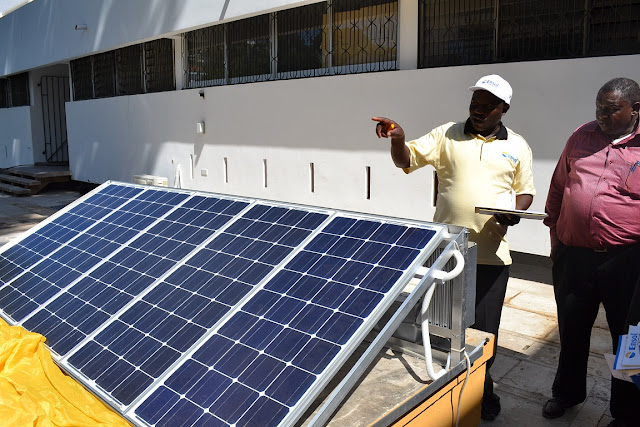(Electric poles in one of the streets in Tanzania )
Speaking during a special program on a local Independent Television (ITV) dubbed “dakika 45” in Dar es salaam, the Minister of Energy and Minerals Prof. Sospeter Muhongo said only 6.6% of the rural Tanzanians are connected to the power grid out of the total 18% population that have access to electricity.
Prof. Muhongo said there can be no reduction of poverty if the majority of the citizens lacked access to energy, saying cheap, availability and accessibility to energy would make the country competitive in the region and move its economy forward.
“The country’s vision 2025 have clearly stipulated to reach the status of a middle income in 2025,” Muhongo said adding “Unless the economy of the country is driven by the availability of cheap and reliable energy, Tanzania was not going to attain such a status”
Prof Muhongo said for this to happen, there was need for the country to record a growth of 10% for a period of 10-15 years, saying this can only be realized with cheap and reliable energy that would be accessed to the majority Tanzanian population.
He underscored that the government has currently reduced the electric connection fee charges by 50-70% in order to allow more citizens be connected to the national grid while at the same time encouraging Rural Energy Authority (REA) to make sure that the majority of the rural population is connected with renewable energy.
Muhongo said the government was looking at the sources of energy and that at present the country is moving away from the unreliable hydro energy to gas whereby 65% of the total energy production in the country is from gas.





